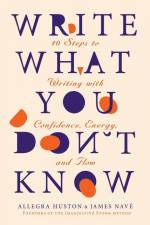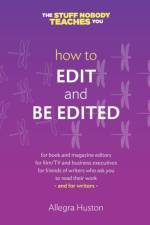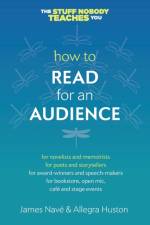- A Guide for Writers and Editors
von Allegra Huston
18,00 €
Too many writers suffer under friendly fire. Too many pros are ground down by unhelpful supervision. How to Edit and Be Edited is the first book to set out the principles of constructive editing—how to provide it, and how to obtain it from those who read your work.An editor and film development executive for over 30 years, Allegra Huston has worked with writers including two Nobel Prize winners, three Booker Prize winners, and Jane Goodall. As the author of the bestselling memoir Love Child and the novel A Stolen Summer, as well as numerous screenplays and magazine articles, she has worked with editors and development executives across the spectrum. In this concise guide, she shares techniques that energize and inspire the writer, clarify problems and foster a strong working relationship.“The Twice 5 Miles guides How to Read for an Audience and How to Edit and Be Edited should be required reading for all writers and editors, as well as all creative writing teachers and students. Both books are bursting with outstanding insights and fresh ideas. I wish I had had both of them years ago, and they’ve changed the way I think about reading in front of an audience and reading the work of other writers. And as a bonus, they’re written in prose so accomplished and excellent, they're a lesson in itself on How to Write a Brilliant Writing Guide. Whether you’re a newbie beginner or a well-seasoned pro or somewhere in between, these books will make you a better editor, reader, and writer.” —Kate Christensen, PEN/Faulkner Award-winning novelist and former teacher at Iowa Writers Workshop“Deft, clear and charming, without a wasted word. The series, which might as well be subtitled ‘things writers are too embarrassed to ask about,’ promises to immediately fill a tremendous need in the lives of those of who still live and die by the book.” ” —Jonathan Lethem, NYT bestselling novelist and Roy E. Disney '51 Chair in Creative Writing, Pomona College“An indispensable tool for students in terms of learning how to respond to fellow writers in a workshop setting. This is a very valuable book.”—Sue William Silverman, novelist and memoirist, faculty member at Vermont College of Fine Arts



